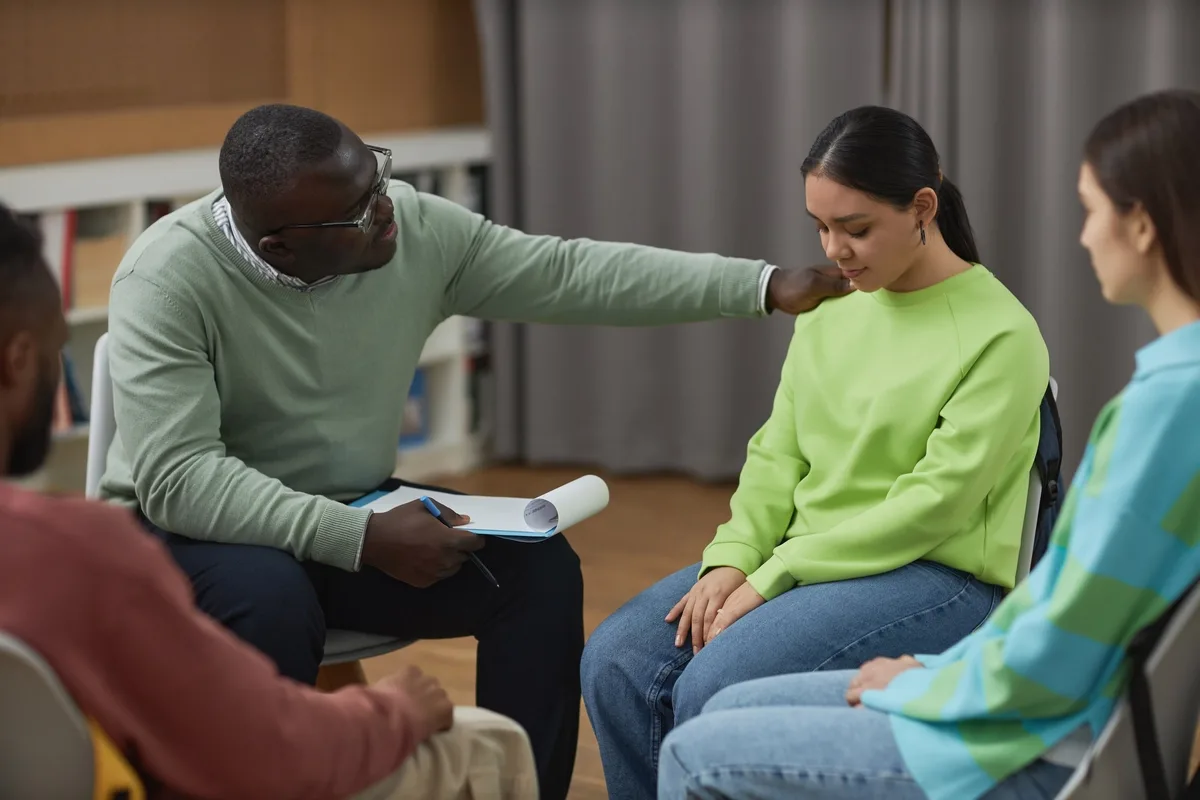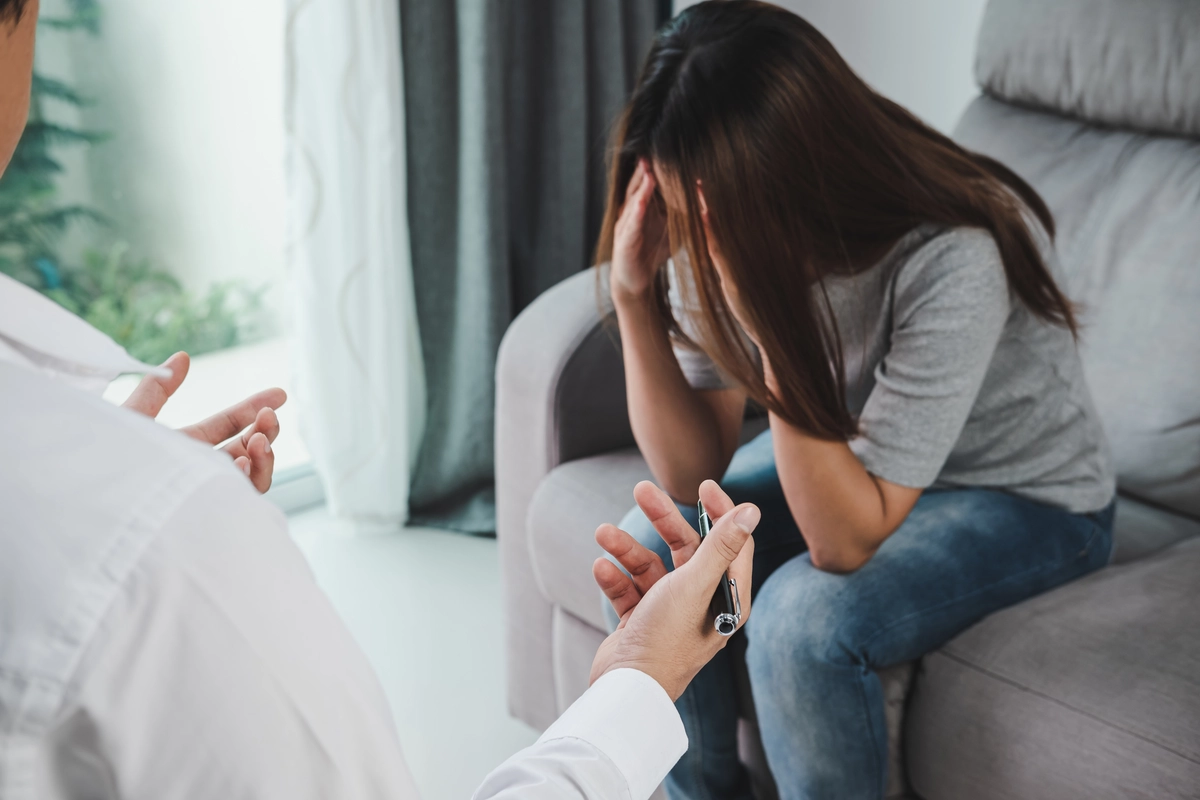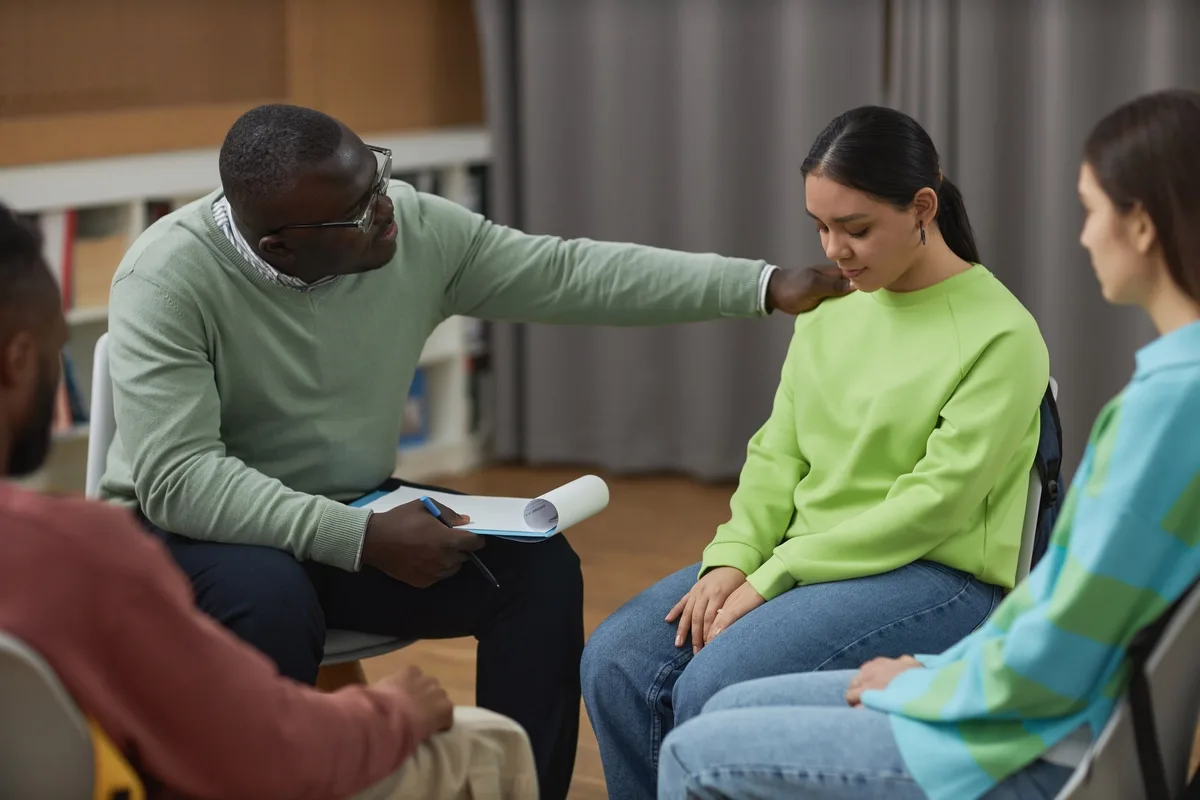24/7 Helpline:
(866) 899-221924/7 Helpline:
(866) 899-2219
Learn more about PTSD Rehab centers in Scott County
PTSD Rehab in Other Counties

Other Insurance Options

Multiplan

Choice Care Network

Private insurance

GEHA

Evernorth

Holman Group

MVP Healthcare

UnitedHealth Group

Cigna

BlueShield

Sliding scale payment assistance

Premera

BlueCross

Self-pay options

Medical Mutual of Ohio

Covered California

Health Partners

Regence

Ceridian

Amerigroup

New Vision Counseling
New Vision Counseling, located in Sikeston, Missouri, offers behavioral health care and mental healt...

Gibson Recovery Center
Gibson Recovery Center is a non-profit rehab located in Sikeston, Missouri. Gibson Recovery Center s...

Awakenings
Awakenings is a private rehab located in Kelso, Washington. Awakenings specializes in the treatment ...


































Bootheel Counseling Services
Bootheel Counseling Services offers outpatient counseling services for individuals or families strug...

Fair Havens Recovery Center
Fair Havens Recovery Center is a private rehab located in Sikeston, Missouri. Fair Havens Recovery C...

Kelso Treatment Solutions
Kelso Treatment Solutions is a private rehab located in Kelso, Washington. Kelso Treatment Solutions...












































